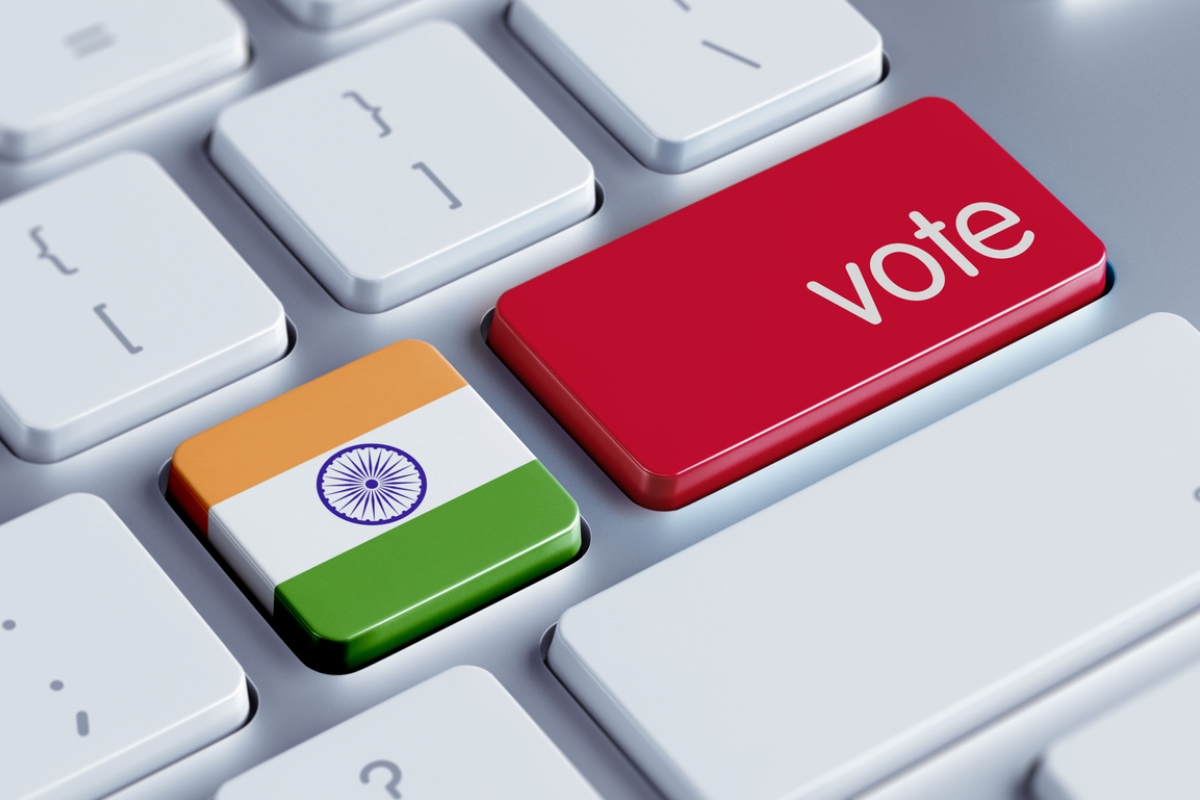Apex court seeks details of Rohingya refugees in response to a plea
The bench posted the matter for further hearing after 10 days.
Though at first look one may say that ‘right to reject’ is a powerful tool in any democratic country. But NOTA enfeebles voters because it gives a power to ‘reject’, not ‘select’.

(Photo: iStock)
NOTA was introduced for the first time in the 16th Lok Sabha elections in India.
According to the Chief Election Commission, “The provision of NOTA option is an expression of decision not to vote for the contesting candidates The Hon’ble Supreme Court , in its judgments dated 27th September 2013, in writ Petition No 161 of 2004 directed that the Commission should make necessary provision in the ballot papers/EVM for ‘None of the Above (NOTA)’ option so that the electors who do not wish to vote for any of the candidates can exercise their right not to vote for any candidate without violation of the secrecy of their decision.”
Advertisement
So, NOTA is an important device in this context. But at the same time former Chief Election Commission Dr SY Quraishi said that ‘even if there are 99 NOTA votes out of a total of 100, and candidate X gets just one vote, X is the winner, having obtained the only valid vote. The rest will be treated as invalid or no votes.’
Advertisement
This statement cautions that the NOTA is an invalid option not a valid vote. When NOTA was introduced there was a general opinion that it would give power to the elector to reject the candidates if he does not like any of them.
The Supreme Court also felt that this would contribute to cleansing politics – “this would build moral pressure on political parties and possibly ring about a rethink on their choice of candidates, making them hesitant to put up candidates with criminal records. The right to negative vote would encourage them to visit the polling stations and express their unhappiness by exercising their choice of rejection.”
Mostly educated and middle class people use this option when they believe that candidates who are contesting from their constituency got tickets with money and muscle power and do not deserve the status of MLAs or MPs.
On the other side, it is ironical that those who ‘vote for change’ actually find that their vote is neither for change nor for deserving and progressive candidates but from a determination which is based on false ‘civic responsibility with a clean conscience’.
Such votes do not change the system. According to a private news channel, 14 per cent of people thought that corruption was the main issue in the 16th Lok Sabha elections. Though corruption was a big issue, ironically 234 candidates were selected who had corruption charges against them. Even now it is said the ‘richest and most criminal’ candidates contested in the election.
In this scenario how one can expect that only ‘cleansed’ political icons would be selected as members of the legislatures. How one can expect or demand clean politics from selected representatives when they themselves have no faith in this ideological approach?
And one can imagine how there will ever be ‘moral pressure’ on political parties to keep in mind NOTA’s power and prevent the entry of corrupt people in the parliament? Jason Brennen wrote in his book ‘The Ethics of Voting’ (2011) that, ‘If I do not vote, your vote counts more.’
He insisted on exercising the right to vote but in the present context when a voter is presses NOTA, his vote does not impact the results. Though at first look one may say that ‘right to reject’ is a powerful tool in any democratic country. But NOTA enfeebles voters because it gives a power to ‘reject’, not ‘select’. Ultimately that rejection would be in favour of the rejected candidate. In any democratic country people should be inspired to take part positively for choosing a suitable candidate; they should not be given an option to press a button which makes them escapists.
They are the people who are fed up with ideologies of political parties, fake promises misleading statements, communal speeches, corruption and nepotism.
Their disgust is genuine; actually they are the people who really want change. But their active participation would become passive when their votes are counted as inconsequential.
The former Secretary-General of the Lok Sabha, Subhash Kashyap rightly said that “Parliamentary democracy ideally is a system in which people govern themselves through the representatives they elect. Elections, therefore, are necessary for a democratic system. Elections are held to elect representatives…if the idea of NOTA is accepted by a large number of voters across the country, it will not serve the purpose of democracy. It will be a sheer invitation to say goodbye to democracy and move to a state of chaos and anarchy.”
Some political analysts suggest that at least 50 per cent votes should be polled before a candidate is declared a winner. They are right in their opinion because in such a situation NOTA would be considered as a ‘negative vote’ in real sense.
If the IAS/IPS exams have negative marking why cannot be NOTA considered as a negative vote? Only then will there be ‘moral pressure’ on political parties.
(The writer is a Punjab-based educationist.)
Advertisement